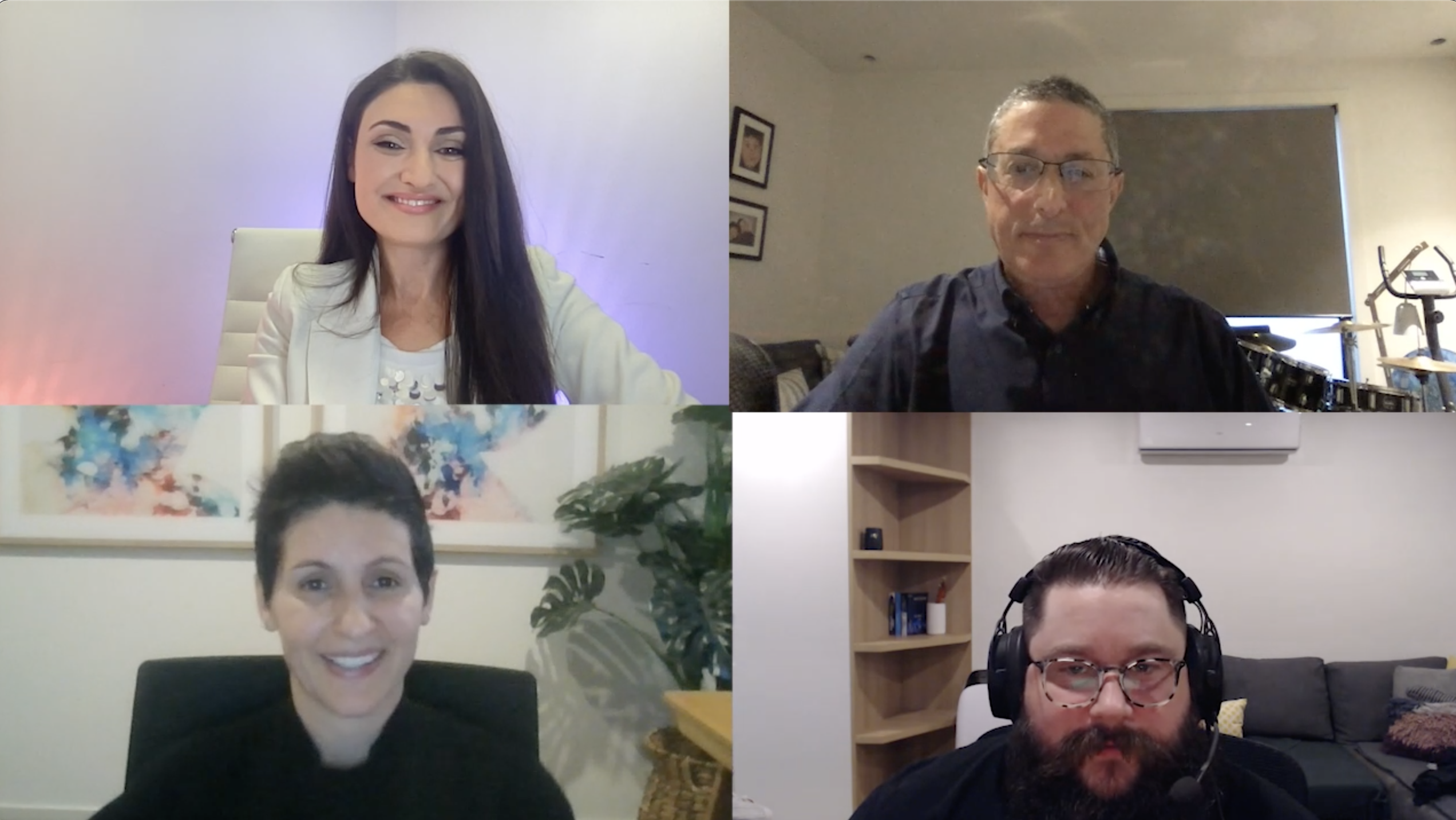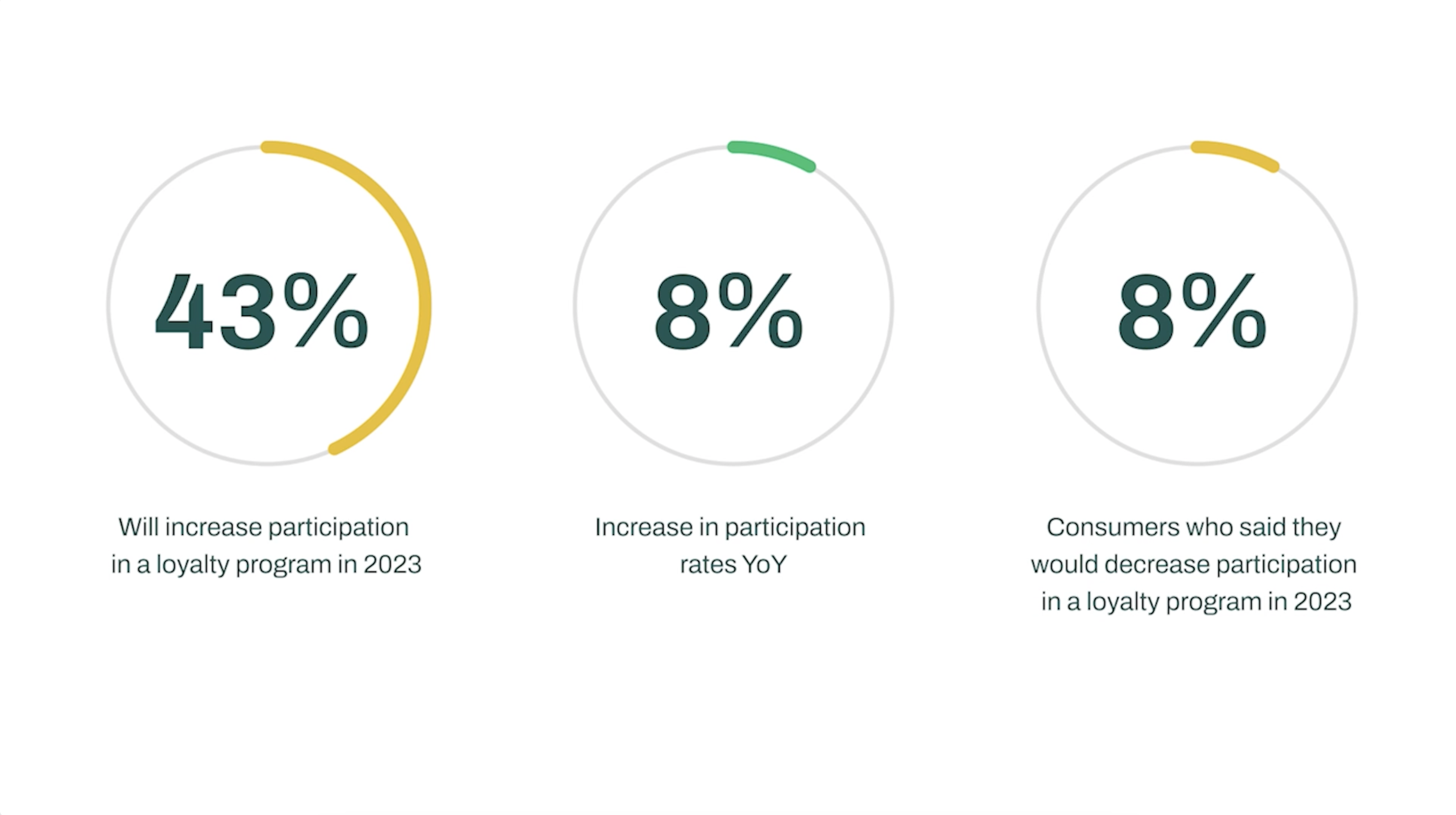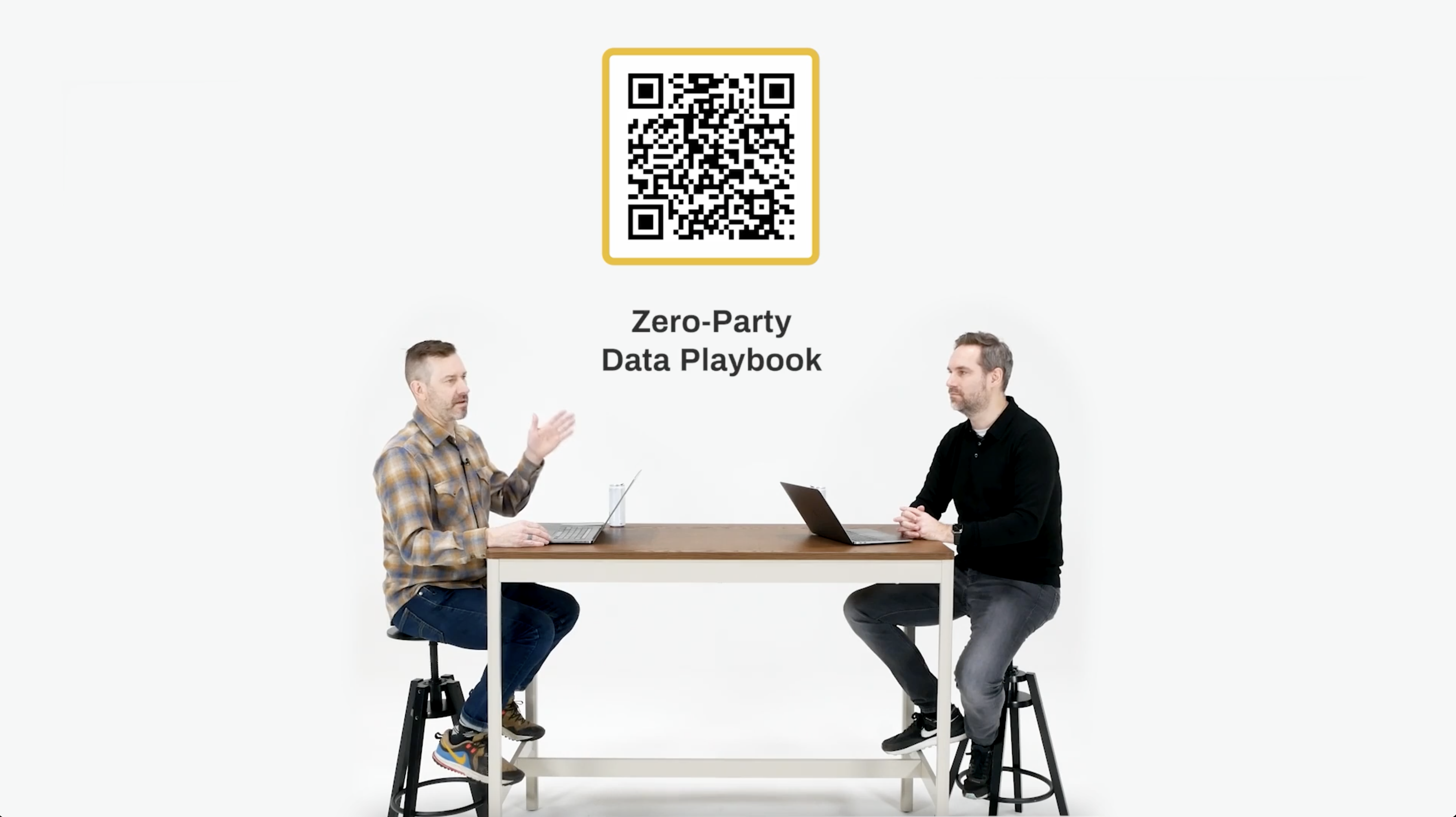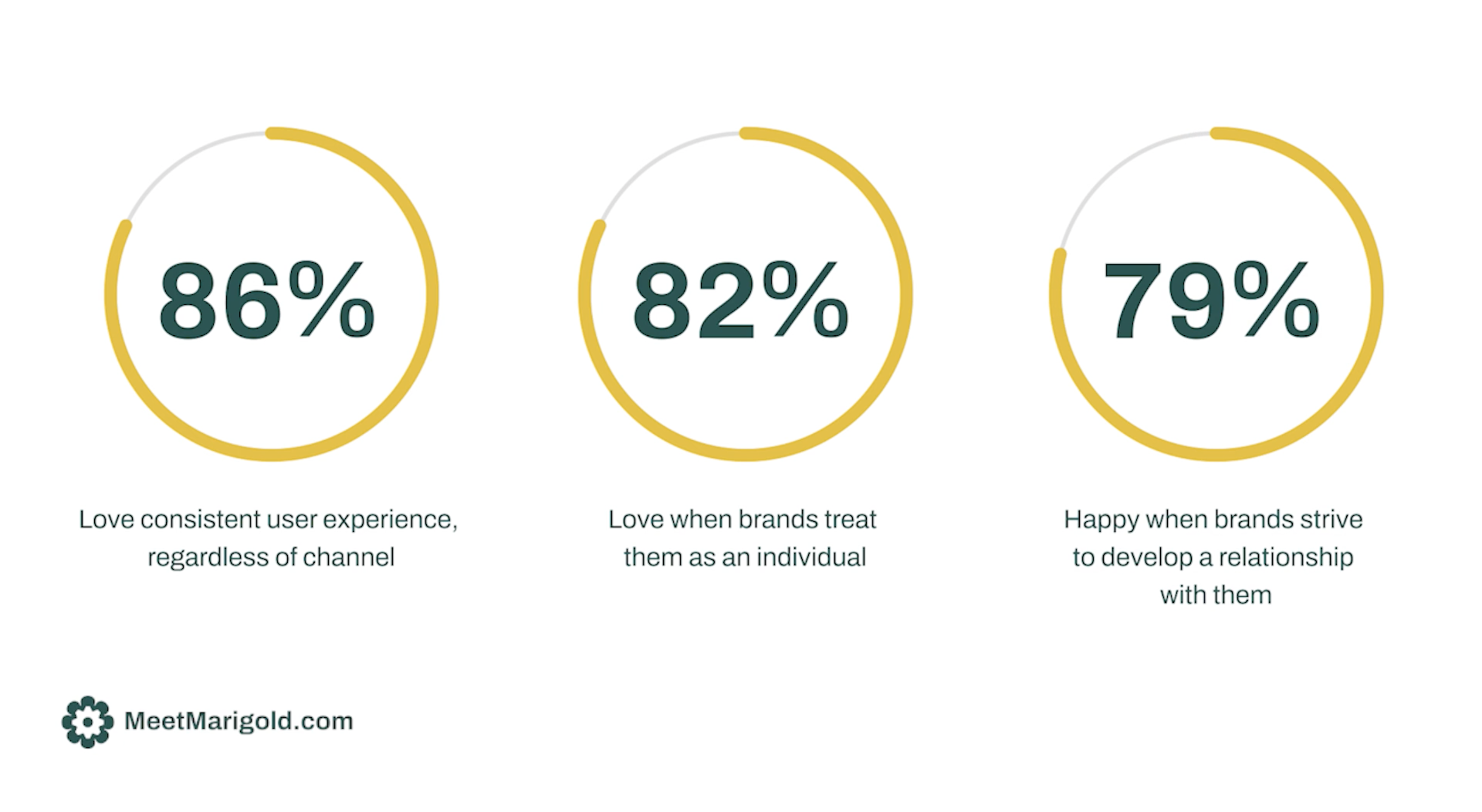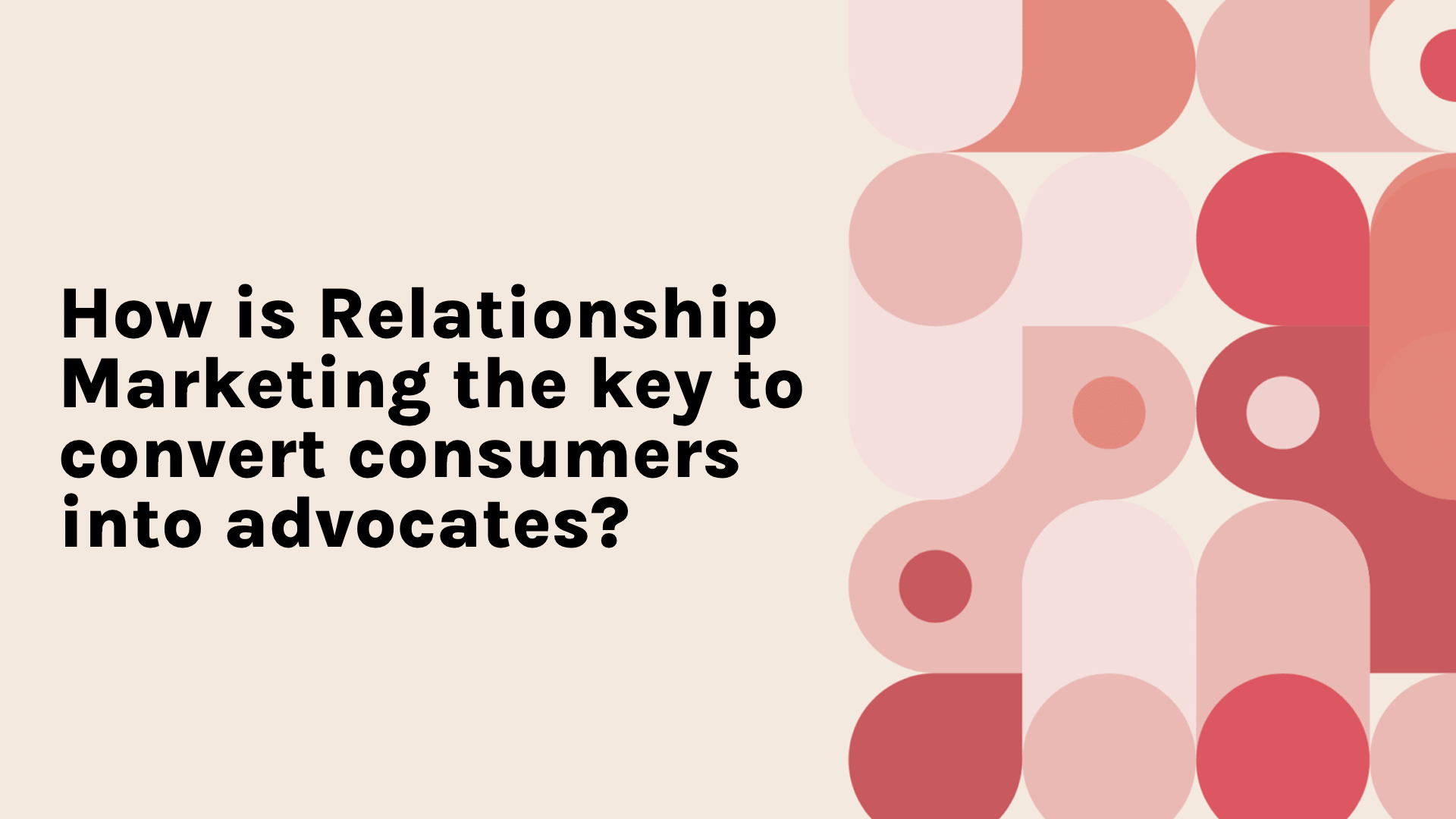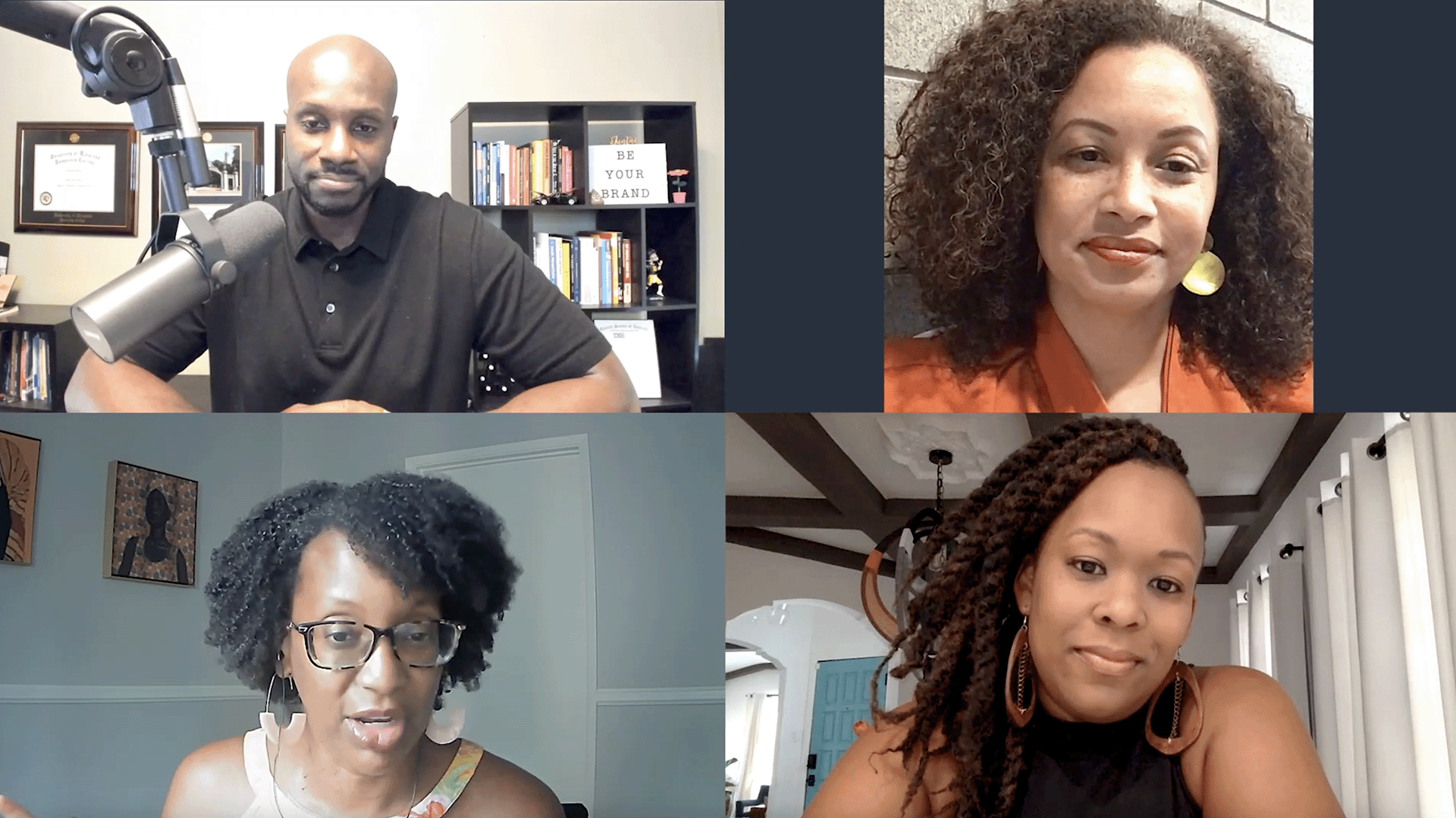2022 Consumer Trends Index Australia w/ Q&A
- 0.5
- 1
- 1.25
- 1.5
- 1.75
- 2
Azadeh Williams: Hello, and welcome to our virtual event, Aussie Marketers: Is Your Brand Relationship Marketing Ready? I'm Azadeh Williams from AZK Media and I'm really excited to be your host today. Now this is a casual, open event designed to open up some pretty heated discussion around what it takes for brands to create personalized, meaningful customer relationships in a cookieless era where customers trust adds less. Joining us today, we have Theresa Spurty, founder and director of Arctic Fox. Adam Posner, CEO and founder of The Point of Loyalty and Miles Toolen, senior solutions consultant at Cheetah Digital. Welcome to all our expert panelists.
Adam Posner: Hi Az.
Theresa Sperti: Hello.
Miles Toolin: Hey, Azzie how you going?
Azadeh Williams: Great. So let's start with this first theme, which is all about consumers trust adds less. So according to Cheetah Digital's new digital consumer trends index, 67% of Aussie consumers do not trust advertising they see on social platforms, 63% don't trust social media platforms with their data. However, when it comes to driving sales, email beats paid social and display ads by up to 228%. So Theresa, are you finding these stats any of any surprise?
Theresa Sperti: Unfortunately, no. So I think what we are seeing really is that over time there's been a real erosion in the level of trust for social platforms overall and on the whole. And this really leads consumers to increasingly become wary about the information that they're providing to these platforms, the advertising that they're seeing or being served on these platforms and how their data is being utilized. And really, we are seeing this erosion of trust coming from a couple of things. Consumers are really concerned about the social impact that these platforms are having on society, as well as being concerned about the approaches that are really being utilized to harvest their data. And there's some interesting stats out of The Washington Post recently, which actually found that of all large tech companies, social platforms have the lowest levels of consumer trust, meaning that platforms Meta, TikTok and others are least trusted out of all of the major tech platforms in market. And so this decline in trust is what I think is driving some of those key outcomes that we are seeing in the research.
Azadeh Williams: Do you think it also has something to do with the real increase of fraudulent ads as well and the fear of clicking on the dodgy ad?
Theresa Sperti: Yeah. Look, I think that's part of it. I think we've heard a lot about fake news in society. I think that we've heard a lot about just these platforms more generally, right? So you've got this halo of concern from a sentiment point of view, from consumers and I think that's trickling down to people's trust levels when they're engaging with these platforms. I think the other thing to really be thinking about in this space is that what we're also seeing in market is from a data privacy point of view, consumers expectations are really changing more broadly. And so consumers are less trustworthy of brands when it comes to providing their data and believing that a company can be trusted to protect it and utilize it effectively. And so I think as a result of that as well, we're seeing this wave of greater skepticism from consumers at a whole lot of levels that are driving some of the results that we've seen.
Adam Posner: Yes. And I'd like to take that a little bit further. I think the aspects of social ads, they're quite interruptive. Sometimes they're irrelevant and they're invasive. So it's almost like the three I's that are also eroding trust in a sense of they're interrupting me, they're irrelevant, is it really what I wanted, is really the feed that's of interest to me. And maybe they're potentially a little bit creepy or invasive. So that also starts to erode their trust as well.
Theresa Sperti: And I think the other thing just connecting to that point Adam, I think you're right, that when these platforms were born and emerged, it was all about driving engagement with the audience. These days, it's all about monetization of platform for these platform providers. And so I think increasingly as they increase the amount of advertising that is being served from consumers, consumers are being bombarded with all kinds of messages and it is hard to delineate between, on these platforms when you hear about things like fake news, what is actually a quality product versus what is something that maybe I'm potentially being taken for a ride.
Adam Posner: Now, I heard an interesting quote that on these platforms, you are the product. So you're not even the consumer, you are the product because it's your data that is the product. And now generally consumers are realizing that if I'm the product and then I'm valuable, it's my data so who are you to go and sell it and use it and all of that. So that you are, the product is suddenly becoming a real awakening.
Miles Toolin: Yeah. Just on that, I guess what it's creating is a data economy as a consumer, right? So if we think long term, what does that mean for me? I've got 500 brands that I'm engaged with in my browser that I've probably accepted my cookies. But let's be honest, I've probably got thousands of brands where my cookies have gone and all these places that I don't even know I've just hit okay because I've had tunnel vision about what I want to buy, so I've just skipped past that bit. But I guess the economy of data for the consumer for me is where we're really going to see a shift and it's going to be hey, can I subscribe to a particular service in the cloud that says, hey Miles, we'll give you 15 bucks a month for instance, then we can push the ads to you that you want to see. If you want to give us more of your data so we can get into first, second, third party levels of data, and that's where we can really dig down, I guess, distill down what levels of data we want to give to certain types of brands and I guess the verticals we want to give it to as well. And that's where I think for me, we'll see it and the trust will go from now we've gone down in trust, but we'll go back the other way. So it's just... But it's going to take time and I guess an education process as well. And I guess it's on the brands to educate as well. You can't expect a consumer to just jump on the worldwide web and be educated in how and where their data's going to be, because now we've ended up in this situation where we've had to push all these laws down to essentially encase a consumer and say hey, we've built this little black box for you. Now the brands can't get in anymore because the cookies crumbled, what are we going to do? But that's just my take on it as well.
Adam Posner: I just would like to add to that. Sorry, just jump in there is that, we talk generally about consumer and there's so many different generational differences. I've got 17, 18, 19 year olds who don't really care that much, to be honest, about their data. They're just on, giving it, doing it. Maybe if you talk to my late father or whomever, whatever, another age group, they'll care more. So generally when you talk consumers, you got to think also about who is that consumer, which group.
Theresa Sperti: And I think it's even a little bit more nuanced than that. I think the younger consumer, and we don't want to just talk about them demographically, but I'm going to. The younger consumer, whilst they may not be as concerned about providing their data, they want more control over how it's actually being leveraged. And so I don't think it's as simple as some groups are happy to provide data, some aren't. Customer expectation is changing and it's really about the brands that are going to win moving ahead, are those that have really earned the right to effectively communicate, earned the right to be entrusted with their data and are able to retain the right to utilize that data. And a lot of that comes back to control and consent.
Miles Toolin: Just a little tidbit I'd add to that. I remember when I started using the internet, couldn't use your full name. It was like, do not put your full name on the internet ever. And now it's like, everyone's full name's on the internet. You know what I mean? So that's a generational thing. I remember MSN messenger had Miles loves hockey or something with my name you know what I mean? And now everyone just uses their full name without even thinking about it twice. So I guess that really is you talking about the different demographics.
Azadeh Williams: Miles, you mentioned about that whole creepy factor of what's happening at the moment and we're almost going back to the future of marketing, where we are not looking at all the whizz bang cookie ad space, but back to emails. And with Cheetah Digital and all the Cheetah Digital customer base, how are you finding that email is more effective when it comes to relationship marketing for Cheetah Digital's clients?
Miles Toolin: Well to be honest Azzie, I think you made a comment around back to the future, right, of marketing. And for us, I guess a trend in what I'm seeing and I guess consulting on as well, is just coming back to the foundations of what is building a brand. And I guess email. It would be safe to say that almost 90% of consumers, brands, businesses, have emails and it is a trusted channel because it's quite an accepted channel, right? So I guess we could start with that as a foundation. And then if you start to think about channel or you could use the term omnichannel, as brands like to call it, and move further out. But even then, omnichannel is quite an old term now, if that makes sense. But yeah, I think email, it's trusted because it's widely accepted and you use your email for almost anything. It's a form of ID now almost, right? I even use it for my light service, New South Wales, my driver's license or anything I do. So I guess in terms of a unique identifier, my email address would be the most accepted form across everything that I do on a day to day. So I guess that would be why we're seeing it being super effective still.
Azadeh Williams: So moving on now to the next theme, which are key loyalty drivers. And again, the digital index really came up with some interesting stats. So around two thirds of Aussie consumers are actually willing to pay more to purchase if they trust the brand. And 40% of consumers in Australia are more likely take to take part in loyalty programs compared to last year. So the whole loyalty drivers are really happening at a really exciting pace in Australia. On the flip side, we have about a quarter of consumers actually leaving their favorite brand because they didn't feel valued as a customer. They felt abandoned by their favorite brand. So it's almost like this is creating this perfect storm for a new era of relationship marketing. And I know Miles, Cheetah talks a lot about relationship marketing, but what exactly is it?
Miles Toolin: Relationship marketing. For me, it's personalization at all really deep one to one level. It's understanding your consumer, listening to your consumer, building a relationship. Gone are the days of emails, what we call filter spamming, getting 500 emails for instance, of just spamming it. That wouldn't be what I would call a relationship, right? That's just a transaction. Relationship marketing is about building a relationship with each individual person in that brand and your loyalty program in this particular case and marketing to them with the things that they actually care about, because it's about caring about each other, right? And then you create good, strong value exchanges, which I think we touch on later as well. But value exchanges are really where it comes in, to me, when we talk about relationship marketing.
Adam Posner: Yeah. I challenge that just a little bit in terms of really getting deeper and what relationships actually mean with a customer and a brand. Again, it's contextual. Do I really want a relationship with my local pet shop? Absolutely. I love my dog and I want to know that they love my dog and they're feeding me the right comms and their personalized, because my dog is so special to me. But do I want a relationship with the electrical shop down the road? Not necessarily. Pretty transactional. So relationship marketing to me, it's got to be really contextual and defined because relationship two way... When I think about loyalty, but we won't go into that right now, but customers still want to be acknowledged and appreciated. So if you want a relationship with me, I also want to be acknowledged and appreciated. Also might want to be rewarded and remunerated. So there might be a transactional relationship, but also a bit of a personal, I know who you are, I know your dog and so on. So there's so many layers to the word relationship that we could explore.
Theresa Sperti: I think you're absolutely right. When you talk about the relationship is really contextual to or relevant to the category or what it is that I'm selling. I absolutely agree. I think some organizations do need to step back and think about what is the type of relationship that our customer will desire rather than... It seems like everyone's trying to build to the same level of maturity to deliver the same level of personalization, et cetera, where some of that might actually not be required based on your individual brand. I think that what we're still seeing in market today is, we've got a few things going on. We are operating in this day and age in a far more competitive market and so it is much harder for brands to maintain loyalty and to build strong relationships. And I think what's happening in many marketing teams and marketing teams are being pushed to do far more with the same resourcing. And so today I would say where we are at as an industry from a relationship marketing point of view, I think we're still very transactional and predominantly focused on delivering business outcomes rather than providing real value to the customer. And you talked Miles, before, about value exchange and I think that's particularly important. But it still feels like much of the activity that brands are driving to market is about, what do we want the customer to do and what's the outcomes that we want to drive, as opposed to really understanding what it is that the customer wants and the type of relationship that they want with us. And to deliver on that, you got to understand your customer. And that means what you're doing has to be grounded in insight. And that means you have to go out and you have to talk to customers. And I think as brands, we're still not very good at listening to customers. And it's really hard to do relationship marketing well, if we don't understand our customers intimately.
Azadeh Williams: So Theresa from your experience, which are the brands that you feel are really getting it right?
Theresa Sperti: That is a tough question. Which is the brands that are getting it right. Who are the brands that are doing something interesting? It's an interesting question because what I tend to find is, what you see from the outset or from the outside is very different often to what you see potentially when you start getting in and under what some of these brands are doing. I don't know if I have a standout brand that I would say absolutely, I think about this brand when I think about really good relationship marketing. Globally, I still think brands like Starbucks have got it right. They've invested very early on in thinking about what is most important to the customer to drive loyalty, what is important to them in a changing world and it's convenience and it's frictionless experiences. And those terms are banded around, but I really feel like the types of experiences that they've developed and enabled for customers really help deliver value to their lives. And they've been on that journey for a long time. If I think about local brands, I don't know. There's not one that immediately comes to mind. I'd love to hear Adam's thoughts.
Adam Posner: I'm glad you went first because I haven't got a clue to the idea. That's a really tough one. Again, it's so personal, at a big scale when you say they're doing it right, you can't tell across their base what's the metric of them doing it right. It's such a hard question, it's such a personal... It's also about the recent memory you have. I can recall a great moment that I've had with a brand at the moment they delivered something to my front door and I opened up the box and there was this huge little personal note and everything and I got emotionally connected and I thought gee, they're getting it right. But that's how I felt at that moment. It's a really hard question to answer, I think of which brand is getting it right.
Theresa Sperti: I think though, now it's good that Adam's said his piece because it's prompted some thinking in my mind. I think what we're seeing is there is a number of niche brands that are starting to grow and pop up in the market, right? And that's the beauty of digital. It's leveled the playing field, if you like. And what niche brands can do really well is service their customer because they don't have some of the legacy, some of the internal politics, some of the challenges. And I would say there's not a niche brand that comes to mind, but I think you would probably find that some of the niche digitally enabled brands are probably the ones that are doing it the best.
Adam Posner: Yeah. And I think the way you've explained, especially in the last 18 months, how they've really, as you say, no legacy system, started from scratch in a way, got their strategy right about what relationship marketing really means, what loyalty really means, how every moment matters. I've measured 12 moments that matter in a whole loyalty engagement program and every moment does matter to build that relationship. And those that can start with almost a piece of paper, a blank piece to start fresh, rather than the big system, massive organizations, they're much harder to execute at scale. So the niche operators would certainly be living off that beginning mindset.
Theresa Sperti: And those larger organizations tend to be driven by very short term revenue focus. So we need sales, we need it now, we need it now, which drives this relationship marketing focus into how do we drive cross sell and upsell rather than adding real value to the customer. So I definitely think there is probably a number of niche brands that are doing it right because they don't have that legacy. One brand that does come to mind is a small fashion retailer in Melbourne, they're called Motto and every time you get a delivery, it's delivered to your door, you've got a nice little chocolate that's in there, there's a beautiful story about their business and the love that they put into making their clothes. But you also see when you go to their social feed, they've got a beautiful VIP group and as soon as there are complaints coming through related to a product, their founders are basically on social, responding to people personally. Please reach out to us, we're so sorry to hear this, this feedback's valuable, please contact us, let us solve this problem for you. And I think that's what good looks like.
Adam Posner: That's what great looks like, not only good. And I know that brand well because they talk about their inaudible and the last 5% of it is really critical of that. They talk about the last mile, the last 5%. It doesn't end when the parcel arrives at the door, it actually only just begins then. So certain categories, the relationship begins from when the parcel arrives, nevermind all the stages up until there.
Theresa Sperti: Yeah. And you look at their Facebook, the way that the founders engage with their clients on Facebook, it's like they know them all individually and personally, it's phenomenal. And I think as we move into a world where everything's so focused on automation, how do you actually bring that human touch and that personal touch to what you do in the relationship marketing era, because that's what consumers expect. But hard to do at scale, very hard.
Azadeh Williams: I think that flows really more interestingly on to the next theme. And we've talked a lot about personalization, value exchange, that feeling of being part of that community Theresa, like you mentioned with Motto. So the next theme is all about personalization and value exchange. And I think we also touched on this is that we're all willing to feel like we can share personal data if we are part of a community, something greater than the sum of its parts and more than half of Australian consumers actually feel that way. On the flip side, 56% of Australian consumers feel frustrated when they receive completely irrelevant content or offers. So moving forward about this, really building that beautiful trust, Theresa you mentioned about that almost real time engagement of, give us feedback, we are happy to work with you. That feeling of all peace of mind that I'm being looked after by this brand. What are some of those strategies that these big brands can implement to make them feel more trusted?
Theresa Sperti: So I think we're increasingly moving into an era where data ethics is going to become critical, it's not optional. And that brands need to go much further than just focusing on privacy compliance. Because what inevitably will happen is as consumers are becoming increasingly skeptical of what brands are doing with their data, what you do with consumers' data impacts your reputation as a brand. So I think one of the key things brands need to really be thinking about, and it might sound dry and it might sound boring but it is incredibly important, is to start to think about data ethics. How do we, as a brand want to show up in the way that we talk to consumers about how we handle their data and how do we enable them to provide them... How do we provide them with the control and the choice, as I touched on before, for them to be able to feel like they're in the driver's seat with their data, rather than us as brands be in the driver's seat. And that's going to be quite a big shift for brands because brands have had really an era where they've mandated how they're going to use customer data. And I think that era is over as we see regulation changing, as we see consumer sentiment changing. And I think brands are going to have to start thinking differently and working differently in the way that they engage with their customers and enable customers with control to leverage their data in the way that they feel comfortable. So I don't know if that's... As I said, it's not the most sexy part, but I think inherently, brand reputation will be tied to how you operate as a brand around data and data ethics is going to be at the fore.
Miles Toolin: I could not agree more, and that all plays pretty heavily into data strategy as a whole, right? And I've got just a quick question. How many of you on this call can remember the last time you engaged with a preference center on any brand that you've dealt with in the last 15 years and you've actually logged into your preference center and provided some form of data about yourself or told them how you want to be communicated to, what you don't want to be communicated to. It's pretty rare, right? You you can't remember the last time actually logged in. So again inaudible. Oh okay, you can?
Azadeh Williams: Not necessarily for a brand, but with Instagram. So Instagram came up with preferences recently so they can deliver you more ads. So I thought okay, I won't put my exact birthday I'll just put a rough estimate without giving too much of my personal information away. So I ended up getting all of these middle- aged boring ads and all this content that was for heart health and just really dull. So I immediately changed back to I was born in the nineties.
Theresa Sperti: But that's a really good example of the fact that brands and big players in the internet haven't done a good job at educating consumers about the value of providing data. And that's a great example of, you've provided some data and all of a sudden you've realized actually, I don't want to receive irrelevant information. And I think that the challenge has been many brands have promised, provide your data and we'll provide a great personalized experience and a seamless experience and it's never come to fruition because brands haven't really worked out how to execute on it. But I think as we move into an era where we've got deprecations of cookie, people will start to realize the value of brands having their data and the value it provides to curated experience, et cetera, et cetera.
Adam Posner: It's very interesting you bring that up Theresa, because in my recent For Love of Money study I asked members of loyalty programs their level of expectation on the brand whose program they belong to, their level of expectation on the use of their data. So I measured for the first time if they got high expectations, no expectations or just the same expectations. And it's fascinating because, just from my study, nearly half, 45%, so they have much higher expectations of the loyalty program to use their data in a meaningful and relevant way. So higher than, because of that, because they're handing it over. So expectations bring responsibility and the verbatims, the comments were very, very educated people saying, I'm giving you all my life, use it to add to my life, don't just use it and abuse it. And all of those sorts of comments.
Theresa Sperti: And I think that's partly because it's not just somebody handing over their personal contact details, but they know that you're going to be tracking their transactional data. So they expect that that data is going to be utilized to deliver value exchange beyond just points or rewards or whatever, a part of inherently the value you get is more relevant, targeted experiences. But I think still today, brands, and some of the biggest brands running loyalty programs, that still haven't got it right in terms of the way that they're engaging with their consumers.
Adam Posner: Yeah. And just a little personal... Yeah, totally. And when I read the verbatims, it just brings it to life. These are the voices of the customer saying, they have access to my purchase history so they should use it for personalized recommendation. They're actually saying that again, I expect the loyalty program to reward me and recognize me, but to enhance my experience with the company. So these expectations, the fact that you just said they know my transaction history, use it to add to my life, to make my life easier or whatever it is.
Azadeh Williams: So Adam, what are some of the really... We've got the good, the bad and the ugly of loyalty programs. What are the epic fails that you've seen in your experience?
Adam Posner: Epic fails. Wow. Well, it really just comes down to three fundamentals. In every single program the areas of failure, you can go quite deep but there's fundamentally three areas that could go wrong. The simplicity. So the simplicity of engaging, joining, interacting. So the whole experience simplicity. The value of the rewards recognition and so on. So there's the simple, the valuable and the personal. So the little acronym that I use is SP and V, simple, personal and valuable. And you can see failures in any of those. So if we took simple, if you have to climb a mountain to enter your details and join a program, well why bother? So epic fail starting that whole onboarding process. Mental gymnastics to understand the proposition. 27 points to get this for 37, 000 rewards. You got to make it simple. The value element is quite deep because it's not only about financial value, there's a whole movement in experiential value, in time is value. Time is a currency now. I've got these six currencies which we can talk about another time. But time is a currency, choice is a currency. We were speaking earlier on about control. People want more control and choice. Don't give me a birthday gift and tell me this is all I get, give me a choice. Let me see which one I want. And then the social community connection. So we could go on much deeper on all of these but simple, personal and valuable are where epic fails, just on any of those, can go wrong.
Miles Toolin: I'd like to add one just from, I guess, if we're talking personalization as well. Post- purchase journeys is something that, in my experience, I'm going to call an epic fail on quite a lot of brands, get it really wrong. And post- purchase, I guess, I think you called it the last mile, right? Essentially of marketing or personalization. I've purchased something. Okay now there's this period of time where I'm supposed to receive it and then the brand affinity builds from there or the relationship then builds. But how many times have we been marketed to before we've even received the thing that we've purchased about things that are completely irrelevant from the same brand that we just purchased 24 hours ago. It happens every day, all day and it is honestly the biggest post- purchase fail. And I will just call that out for any brand, if you're not waiting until someone's received what they've just bought from you, that is a fail. Give them some time, let them open it, let them look at it and go oh, it's a shiny new thing and then work on it. I've even seen a brand fail where they'll be still marketing to you when they've sold you you're going to get something in a time window of, say 10 business days. And then you haven't received it for two months, but they're still marketing to you in that two month period as well. And it's like, come on guys.
Adam Posner: I want to just take that little story further Miles, I'll mention the brand to the community that's listening and involved because of a great experience, not an epic fail, which I just went online and purchased something from JD Sports. And they set my expectations up very clearly when I first checked out, they said you'll receive it within four to seven business days. It was on a Saturday that I ordered it. So I calculated the days from the business day Monday in terms of setting my own expectations. Now that meant I could either get it from the Monday, but four days later from the Monday, either Thursday, Friday or even into the following week based on business days. Well, it arrived on Tuesday. So they set my expectations, they delivered beneath my expectations, but the beauty of it was their text messaging was actually really a smile in the mind moment. So they said you'll receive it between 09:00 and 11:00 AM on this day. And I said, great. So I'm at home, I'll be there and I'll collect. At 9: 05 when it wasn't there I got another message saying your postie is running a little bit behind, your postie. It's a general text, your postie is running a little bit behind, he'll be there just after 11 o'clock. But actually he arrived 10 minutes later so obviously their GPS's and their systems... But the whole delivery, you talk about that mile piece and just keeping my expectations. Everything was down and then they went a bit higher and I just thought it was a great example of... And that's automated at scale because I look behind the systems. And so that's just a little example of a story of expectations and delivery.
Azadeh Williams: So we have one final theme to go through, which we have touched on quite a bit. Privacy and of course this whole cookieless future. We have spoken a lot about cookie tracking, what's creepy, not cool. 69% of Aussie can consumers now do not like cookie tracking. They find it creepy. Only 13% will miss cookies. I'm surprised there even is that number that will miss cookies. So for all of the brands that are relying heavily on this whole cookie experience to engage with their customers, Theresa do you think that Aussie brands really are ready for this whole zero party data cookieless future?
Theresa Sperti: No I do not. We've just launched our recent marketing state of play report for year two. And we surveyed over 200 senior leaders, digital and marketing leaders from brands large and small. And what we actually found was that only 12% of brands feel like they have a clear path forward. In terms of adapting, 45%, so nearly half, said they're yet to start planning for the change that's coming. So download the report. But outside of that, I think the remaining portion of brands said that they're in the early planning stages. And I think a number of brands, despite the fact that this is being talked about everywhere within the industry, I don't think many brands have grasped just what this truly means and the size and scale of the change that is upon them. And I think part of the issue as well for many brands is that we saw from the report that there's very low levels of data literacy in marketing teams within this country. Only one in three felt that their teams have strong data literacy. And so I think that's part of what's driving this. If you don't have strong literacy and knowledge of data and concepts like cookies, it's very hard to know how to adapt.
Miles Toolin: Yeah, totally agree. Those numbers are insane. If I just think okay, I don't want to harp on about it, but you think about at the start of COVID how many businesses weren't digitally ready and now we're in an era where the cookies have been swept inaudible under from everyone's feet, it's like you've literally had a warning two to two and a half, three years ago that you should be thinking about getting your business digitally ready for what's coming in the future. And if you're not, it's going to be pretty tough times ahead for you.
Theresa Sperti: That's pretty common Miles. I think you make a good point, it's pretty common, right? If we think about brands and the digital era and Australia, brands have been very slow to move. It shouldn't have taken COVID for brands to adapt from the digital point of view. The digital age has been around now for the best part of two decades and some of the conversations and some of the things that brands are tackling should have happened five, 10 years ago. What we talk about a lot, we do a lot of transformation work, digital transformation work and brands need a catalyst to change and they that catalyst is normally when the change is here and they have to do something now. And so I think the catalyst for change will be when the change happens, everyone will go oh, how did we miss that? Now we need to scramble to solve for that. And I think that's absolutely what's going to happen in this market.
Adam Posner: Well, I'm seeing it just as a consultancy of one Theresa, in the sense of my area of love and specialization is loyalty and loyalty programs. And the number of brands, and I'm clearly only one of many consultants. And especially technology Miles, I'm sure you've seen the same way. The number of inquiries I'm getting from outside of retail, other categories. FMCG, CPG brands, we want to have a direct to consumer relationship. B2B. You talked about that earlier on or we might have talked about that off air, are really waking up to form that relationship by definition with their customers through loyalty or loyalty program. But I have seen a huge increase, almost like a Renaissance. I've been in this game for more years than I care to remember and the people used to say, what do you do? I'd say, I work with loyalty programs. Oh, those things. Now it's wow, what is it, how does it work? Is there more than points? Can you build a community? What is loyalty? So it's much deeper, there's much more interest. CEO's. I'm getting inquiries. Not that this is the solution to everything, but a loyalty program does help in the zero and first party.
Theresa Sperti: And I think it's a good point. It does help because I think those that are starting to tackle it, they're looking for the silver bullet and the silver bullet is, we need a first party data strategy, we need a loyalty program. And if you look at the ecosystem that's impacted and you have half a clue about what's going to happen, you know that actually first party data strategy is only part of it. And so what we recommend to brands a lot, and we invest a bit of time with some, brands helping them work through what do we need to do. But our starting point is, audit your current landscape. Look at where you are going to be impacted. What is your vulnerabilities? What is your impact from such a change? I'm talking everything from tagging to the way you target people through advertising, et cetera, et cetera, and then work out what is our strategy to evolve and if you are going to go down the path of loyalty, because loyalty is an incredibly powerful tool to drive first party data, what role does loyalty play to help us build our first party data assets. Acknowledging that a loyalty program. Isn't the only mechanism you can use to build your first party data assets. There are other things you can do.
Adam Posner: And I like you make them stand back and do that, the bigger picture audit. And the similar thing is when I get the approach of, we need a program for it to solve the problem of first or zero. And I say, well why? Why? Why, why, why? Get really, really clear on the why? And it's interesting to hear you say that, even in the bigger picture, so that's very... Miles what do you see in terms of the interest around technology?
Miles Toolin: Yeah similar to yourself, it's definitely becoming pretty apparent that everyone's knocking on the doors going hey, loyalty, loyalty, loyalty. And if I look in the, I guess even the last two to three years, we've obviously launched some quite successful loyalty programs as well. II don't think I need to plug the names here, but we've definitely helped quite a few brands even in the B2B space as well. And that is essentially building, as Theresa said, it's a really good tool to get first and first party data, get the preferences up, get all those different things that we need to understand about our consumers. And it is quite good to see, but I think we've got a long way to go. For me a challenge that I challenge myself with is, every time I'm in my room with a CMO or a CEO, how do I educate them best on understanding, I guess from my standpoint, it's technology to solve the problems. Because we're actually talking about strategy and the blue sky and saying these are the things and the trends to solve for, but what's tangible in that, okay? What technology do I buy to solve that problem? Do you know what I mean? Is there technology that's fit for purpose? Is there stuff? So for me, it's like, what's the best message around that. And that's something I try to engage in and educate the market on. Because it's all well and good we can talk about it and we can say loyalty is this and strategy and data is that, but how do I actually fix it for a little... Say I'm 500 person org and I've got a budget, they all have budgets. How do I actually go to the market and use all this information that we're giving them and put some tech behind it to actually make it happen. I guess that's another big question for me as well.
Theresa Sperti: And here's the problem, connected to what you're talking about Miles. It's well and good to have the data through a loyalty program, but as an organization, if you don't have data literacy within your marketing teams, how are you going to use the data?
Miles Toolin: Correct.
Theresa Sperti: Right? And I sit and think about this stuff a lot because I see it all the time-
Miles Toolin: Yeah. Me too.
Theresa Sperti: ...in many organizations. The loyalty program's the starting point because it provides you with a mechanism and value exchange to capture the data. But then if you don't have the internal capability to really leverage that asset that you're building, it's probably not going to solve your problem.
Miles Toolin: No, then you just end up-
Adam Posner: inaudible you create more problems.
Theresa Sperti: Yeah, exactly inaudible
Miles Toolin: You end up with-
Theresa Sperti: And you spin your wheels and-
Miles Toolin: ...we used to call them data swamps.
Theresa Sperti: Yeah. There you go.
Miles Toolin: You end up with this bit and there's the trend of CDP's, is it over? I'm not sure, right? I think there's it's questionable. But all these data CDP's are in the market right now, but where's the activation on the back of it? And this comes into the same comment you just made, but obviously there's the resourcing side, so the operational efficiencies. Do we have the people on the ground that are illiterate in it? No. Okay cool, that's great. Is there a vendor or a tech product that can help me with the literacy of it? Yes, there's lots of them and we can provide service, but the activation of it is the next big step. And there's, as we know, the omnichannel, there's all these different channels to activate through, how do we do it? So I guess for me, I'm calling that here as the next big challenge. Everyone's all about getting the data, putting it into one place, but how they're actually going to use it is the next big thing. And I think you'll see a lot of little tech startups shoot up about how we're going to activate all of this data that all these marketing teams have now aggregated together. But it's a trend.
Adam Posner: And more demand Theresa, of your training.
Miles Toolin: Yeah, That's right.
Theresa Sperti: Look, we spend a lot of time talking to organizations about data strategy and data strategy, that's partly what we're talking about here. Yes, we're talking about loyalty programs and driving value exchange, but what sits behind that is your data strategy. And this isn't about collection and it isn't about privacy and it isn't about utilization, it's about all of those things. And so if you're embarking on building a first party data strategy and a zero party data strategy to combat what it is that is third party cookie deprecation, then you're going to have to be thinking about all of those things. And it takes time to build maturity. And so that's what you've got to be ready for. If you are a brand that has not started evolving and adapting, take this as your signal to go and start doing something because you're not going to be able to flick a switch and change overnight and build that maturity. It's not going to happen, it takes time.
Azadeh Williams: Absolutely. It's that data driven decision making, the data driven ecosystem and accountability for it. Having the right people and champions in place who are willing to be brave enough to take the brand on that digital transformation. And a lot of people are really fearful of change and worried about all being blamed for when things go wrong but if we're always fearful we'll never evolve and innovate. So now's a really great chance to really take what we mentioned as that data Renaissance to the next level and be brave and bold. And we've just run out of time, but I want to thank each and every one of you, Theresa, Miles, Adam, it's been a great debate. I wish we could talk about this all day. I think it's a never ending discussion. But everyone, if you have any questions, stick around, our experts will be on hand to answer any questions. And if you haven't already, please check out Cheetah's new digital consumer trends index at cheetahdigital. com and a big thank you everyone again.
Adam Posner: Thanks Very much.
Theresa Sperti: Thank you.
Miles Toolin: Thank you very much. Cheers.
Azadeh Williams: Hi everyone. Now crossing over to our live questions. Don't be shy. Unfortunately, Adam can't be with us today. He is struggling with COVID so he does send his apologies. But we actually do have one question already and some great insights from some of the guests during our really great discussion. So one of the questions is, does the panel prefer shopping online or in store and what's the better experience?
Theresa Sperti: Miles do you want to go first?
Miles Toolin: I'll let you... Yeah, okay. My personal preference is online. I just think maybe that's because I've scarred from a few in- store experiences in my past, but I'm very big on the online at the moment.
Theresa Sperti: So for me... Can you hear me?
Azadeh Williams: We can hear you perfectly fine.
Theresa Sperti: So for me, it's funny, I would say that I'm probably a bit of a digital native, but I would say I still quite enjoy the in- store experience, particularly for certain categories like fashion. My preference tends to be, I like to try it on, I like to see and touch it. Whereas for other categories like grocery shopping, et cetera, I like to do it all online because I don't have the time to run around to go into supermarkets, et cetera, et cetera. And I like it just delivered to my door. So it depends on the category for me.
Azadeh Williams: So a couple of other questions that we're looking at now, we did talk a lot about third party cookies and how to prepare, but one of the burning questions is, what is actually the first step? What's the number one step to take to get ready for a cookieless future?
Theresa Sperti: So I touched on that in the panel discussion and I would probably reiterate what I said, which is that I really think the starting point has to be, you've got to look at the impact of third party cookie deprecation on your brand today. And what I mean by that is, if you were talking about a blank slate, it would be very easy for brands just to build towards the future, but you're not. You're effectively starting with how you engage with the consumer today. And so what you need to look at is, based on how we engage today, what are the potential impacts from third party cookie deprecation? So what advertising is it going to impact? What experiences do we deliver today as a brand that might be powered by some sort of cookie at some sort of part of that experience? And so getting in and under where you are today helps you to understand, okay this is where we are, this is going to be the impacts when the changeover happens so this is what we are going to need to do in order to pivot and shift. And I still really do believe if you don't know where you are today and you don't understand the impacts, it's impossible to plan for tomorrow. So that's my point of view.
Azadeh Williams: Great. Okay, so we have another question coming through. You mentioned the interesting dichotomy of the increase in automation, scalability and demand of personalization. What is your recommendation on first steps for those dealing with the data swamp?
Miles Toolin: First steps would be again, I think it's similar to understanding what our landscape is right now, right? So you've always got to have an as is and a to be state. So let's do an architectural diagram of, it could be all our customer journeys similar to, and what Theresa just touched on, reverse engineering the process, working out all those touch points. And in terms of data, it could be what data are we missing for a basic welcome journey. Map out the welcome journey and then look at all the data points and look at what you're missing. And then it could also start with a question. What do I want from my data or what does a welcome journey look like from my data? So when you ask yourself a question relative to data, you generally understand more about the data that you need as opposed to just going hey, let's aggregate all of our data that we think we need and then you end up with all this data and not knowing what to do with it. But definitely reverse engineering. Start with the question, start small and just map it out. Theresa, do you want to add anything there?
Theresa Sperti: Yeah, I think that what is always sometimes useful is to think about where are we trying to go? So not casting a really detailed view of the future because we can get ourselves caught up in the detail and the future will change anyway. But broadly, where are we trying to head? What is that vision and direction? And then how do we build towards that direction over time. And then think about, okay if we're going to move in that direction... I'm saying the word direction a lot. If we're going to move to that future state, what do we need to put in place now and what do we need to put in place over time in order to make sure that we can get there? That way you have guardrails that are guiding and governing the decisions you're making over time.
Azadeh Williams: So another question that's come through is all about loyalty marketing. So in relation to this relationship marketing, loyalty marketing, is there value in referral marketing and engaging with your existing happy customers to say, refer a friend?
Miles Toolin: I'll let you go first Theresa.
Theresa Sperti: Sure, no worries. So what I would say is that we've seen very, very large tech brands leverage that technique quite successfully, right? If we think about brands like Airbnb, I would say they are one case in point that has very, very successfully leveraged referral based marketing to drive their growth. I think it all comes down to how you architect that mechanism in order to drive the referral. Airbnb has done it quite well in that they've really thought about what's in it for the individual, as well as the person that you're referring to. And so that's why I think in part, it's been so successful. And the ability to drive referral will differ by industry. So I think it's really about thinking about the mechanism and whether or not the industry, it's the right industry for referrals to be welcomed by individuals.
Azadeh Williams: Fantastic. And we've just got notification that Adam is actually on chat, which is fantastic, really appreciative despite his current health challenges. So if there are any questions, he's also available to provide some of his insights via the chat box. We do have five more minutes. So we've got a little bit more time for some questions so please don't be shy, keep them coming through. There's another question actually from Louise, she unfortunately missed the first section so she's wondering, when is the actual date that the cookie change will take effect that impacts Australian marketers?
Theresa Sperti: So there's not a date that is set, it's going to progressively roll out over time next year. And so there won't be a doomsday date where we wake up and it's all changed. Google has actively said there's going to be some progressive changes. But we know it's coming in 2023. And I should probably know if it's the first half or the second half, but I don't. I just know that it's coming in 2023.
Azadeh Williams: Great. Are there any other questions that anyone wants to ask? We've got five more minutes. In the meantime, there is something that we did touch on during the webinar, but maybe worth Miles just fleshing out a little bit more in terms of how Cheetah is actually helping clients ready themselves for this cookieless future.
Miles Toolin: Yeah. Essentially, I think it's what we discussed and I think I touched on it lightly around the foundations of marketing and I think I mentioned preference centers. This obviously it might be a good place to start to think about your cookieless future and then your strategies around zero and first party data. And I don't want that term to come across as scary, what is our strategy for zero and first party data? It's more about, let's try to understand again, what data we have and what data we need to get to where we need to go and just keeping it simple in that sense. And that's the approach that we're taking. Because there is a lot of businesses that rely very heavily on cookies so let's just work out what we need to do to keep doing what we're doing without cookies. And it can be done, we just need the right mechanisms in place and the right strategy.
Azadeh Williams: Okay, great. So time is running out but there's one burning question. Theresa, what is the one thing that marketers in Australia should stop doing from tomorrow and what should they start doing?
Theresa Sperti: One thing. Okay, so I would say... There's probably two, I would say. Or maybe even three. Stop just worrying about campaigns. To add value to organizations in this day and age, we've got to think beyond campaigns as marketers and add value to the broader organization. So that would be the first one. We need to start demonstrating the real value of marketing, which goes beyond campaigns. Number two would be stop focusing on everything that's new and shiny in the buzz. You've got to build foundations, you've got to think about what's contextually relevant as a trend to your organization. And I think we're getting too caught up in what's the shiny lights of the industry, rather than what needs to be done to really build change within our organizations. And the third would be, as an individual, be really open and vulnerable with where am I today as a marketer and really embrace if you need to upskill. So this is probably not a stop, but really this is probably a start. Really embrace the fact that we all need to continuously upskill and evolve our skill base because this market is changing and evolving and you will get left behind if you're not prepared to continually invest in yourself. So the stop would be stop waiting for everyone else to give you a development plan. You need to drive your skills development in a very rapidly changing industry in order to remain relevant. So there you go. You got three.
Azadeh Williams: Excellent. Fantastic. I think relevancy is all about the upskilling and learning and keeping up and being prepared for that change being brave, like we mentioned. So that wraps up our webinar. Again, thank you everyone for attending. Thank you to our amazing panelists. And please, if you haven't already, please check out Cheetah's new digital consumer trans index at cheetahdigital. com. Thanks very much.
Theresa Sperti: Thanks everyone.
DESCRIPTION
Aussie consumers trust ads less but will pay more to purchase from a trusted brand, a new report from Cheetah Digital reveals.
What can marketers do to keep up with this seismic shift in consumer expectations where hyper-personalized relationships with brands are the only way forward?
Join a panel of marketing experts as we discuss:
- What Aussie consumers want and don’t want from their favorite brands
- How to win customers’ hearts and minds with relationship marketing
- The “sweet spot” of customer loyalty in a world without cookies
Today's Guests

Adam Posner

Miles Toolin

Azadeh Williams


